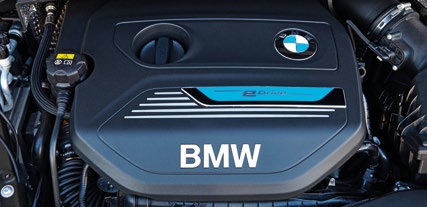Bmw’s phevs offer distinct advantages over conventional hybrid and petrol engines.


Bmw’s phevs offer distinct advantages over conventional hybrid and petrol engines.

If you’re like most motorists, you’ve probably been reading about PHEVs, hybrids and EVs. All these terms can get a bit confusing, even for today’s tech-savvy buyers.
If you’ve been wondering what these terms mean, we’ve got a quick and handy guide for you.
HYBRID
These are cars that have both petrol and electric motors. The electric motor is driven by a battery pack, which in turn is charged by the petrol engine. When there’s enough charge in the battery pack, the car can run on electricity alone.
When the driver requires more power, both the electric motor and petrol engine will work together. The motorist enjoys both power and efficiency.
PHEV
PHEV refers to plug-in hybrids, or hybrid cars that allow drivers to charge their battery packs by plugging them into a charging station or regular wall socket.
The advantage of a PHEV over a regular hybrid is enormous. Without running the petrol engine, a PHEV owner can have a fully charged battery pack. Depending on his driving style and traffic conditions, that could give him a pure electric range that can cover the daily commute to and from the office!

ELECTRIC CAR
Electric cars or EVs (electric vehicles) run on electric power alone. If the electricity used to charge their batteries comes from clean power sources, then an electric car can be even more eco-friendly than a hybrid or PHEV.
EVs also have the edge when it comes to performance and running costs. Electric motors are not only more efficient than petrol engines – their power delivery is instantaneous, too.
And because electric motors don’t require servicing (there are no fluids to change or components to replace), an EV’s maintenance costs are considerably lower compared to hybrids and PHEVs, too.
BMW LEADS THE WAY
Now that you know what hybrids, PHEVs and EVs are, where does BMW fit in all this?
BMW offers motorists the widest range of PHEVs in Singapore. No other carmaker matches the breadth of their range.
There is a BMW PHEV to suit every need.
"BMW OFFERS MOTORISTS THE WIDEST RANGE OF PHEVs IN SINGAPORE."
For dynamic family men, the BMW 225xe Active Tourer iPerformance delivers efficiency of up to 2 litres per 100km*, and a maximum pure electric range of 41km.
More adventurous families will be drawn to the BMW X5 xDrive40e iPerformance, a seven-seater SUV that’s as surefooted as it is efficient. This allwheel- drive sports utility vehicle boasts 313hp and 450Nm, but only consumes an average of 3.3 to 3.4 litres of fuel per 100km*, and has an electric-only range of up to 31km.
The BMW PHEV range includes the brand’s stellar lineup of sports saloons, too, with the BMW 330e iPerformance, BMW 530e iPerformance and BMW 740Le xDrive iPerformance aimed at keen drivers who desire both athleticism and efficiency.
ELECTRIFYING BMW i
BMW also sets the benchmark when it comes to electric cars. The award-winning BMW i3, with its improved 94Ah battery, now delivers a range of up to 200km, an increase of over 50 percent. If you average 50km daily, you would only need to charge the BMW i3 once every three days!


*MANUFACTURER’S CLAIM























